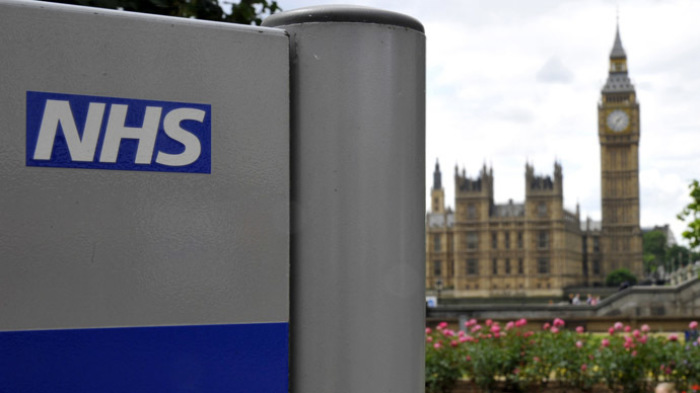UK allows at-home medical abortions amid lockdown; Christian group to challenge

Pro-life organizations are contemplating legal action against guidance issued by the United Kingdom government allowing women in England to undergo medical abortions in their homes as the coronavirus pandemic continues.
The U.K. Department of Health and Social Care temporarily changed regulations last Friday, allowing women who need an abortion before the 10th week of pregnancy to take abortion-inducing pills mifepristone and misoprostol at home during the national lockdown.
The new regulations effectively add the “home of a pregnant woman who is undergoing treatment for the purposes of termination of her pregnancy” to a list of approved places where medical abortions may be carried.
The new policy will only be in effect for two years or until the coronavirus outbreak is over. The policy change was confirmed by an agency spokesperson to Time.
The policy specifically clarifies that a medical abortion can only be carried out in a pregnant woman’s home if the patient had a “consultation with an approved place via video link, telephone conference or other electronic means” or had “consultation with a registered medical practitioner via video link, telephone conference or other electronic means.”
Under the previous policy following a change of law last year, medical abortions could only happen at hospitals or abortion clinics approved by the secretary of state. According to U.K. Christian organization CARE, Women would take the first pill — mifepristone — at a clinic or hospital and then take the second pill — misoprostol — later at home.
The new policy comes after the department said last week that it made an error by publishing earlier guidance that allowed at-home medical abortions. A spokesperson last week had assured that there would be “no changes to abortion regulations.”
The Christian Legal Centre, an evangelical conservative legal organization also known as Christian Concern, is accusing the U.K. government of making a “double U-turn by announcing the most significant change to abortion law since 1967.”
In a statement, the group explained that doctors will be allowed to prescribe mifepristone and misoprostol over the phone or digital platforms like Facetime or Skype. The organization warns that the change will allow women to take the drugs in their own homes without onsite medical supervision.
Health Minister Lord Bethell last month rejected proposed changes to abortion law in the House of Lords. On March 25, Bethell stressed at the time that it is an “essential safeguard” that a woman attends a clinic to ensure there are no issues with her medical abortion. He also warned that at-home medical abortions could make women in abusive relationships more vulnerable to pressure to abort their child.
Christian Concern voiced concern with the fact that the change in policy comes without prior or parliamentary debate. Christian Concern CEO Andrea Williams confirmed to The Telegraph that the organization will file a legal challenge against the policy in the hope that it will become subject to a judicial review.
“Our legal team has started working on a judicial review claim today,” she said, adding that the policy change is a “scandalous act.”
In an online statement, Williams warned that the government appears to be “pushing through a back-door policy that will put thousands of women at risk” during a “time of national and global crisis.” She called the idea of allowing the medical profession to prescribe such powerful drugs without seeing the patient first “disturbing.”
“Abortion has nothing to do with coronavirus, and abusing public trust to advance a different agenda undermines trust in the government and effectiveness of response to the epidemic,” Williams said. “There are no proposals to our knowledge to use abortion clinics’ capacity or personnel to respond to coronavirus.”
The Society for the Protection of Unborn Children said that it is also weighing the possibility of a legal challenge to the policy change.
“It is our understanding that such a policy is beyond the scope of the Abortion Act,” SPUC CEO John Deighan said in a statement. “However, we will closely examine the policy and take appropriate action based on the best legal advice.”
The temporary policy was also criticized by Catholic Bishop Bishop John Sherrington of the Westminster Diocese. In an interview with the Catholic News Agency, Sherrington said he was “shocked.”
He warned that increasing access to medical abortion at home diminishes the “seriousness with which these decisions should be taken” as well as the “psychological dangers of the administration of these drugs at home.”
“These measures fundamentally change access to abortion in England and Wales for the foreseeable future,” Sherrington said.
Pro-abortion rights groups in the U.K. have celebrated the decision.
Over a dozen medical associations, including the Royal College of Obstetricians and Gynaecologists, the Royal College of Midwives and the British Pregnancy Advisory Service have pushed for medical abortions to be allowed in homes so that women don’t overload the country’s overworked health system.
“Giving women the option of taking both abortion pills at home following a video consultation is safe and effective and has rightly been judged as a vital and necessary step if we are to limit the spread of COVID-19,” RCOG President Edward Morris said in a statement.
“Many women will no longer be forced to make the difficult decision between leaving their home and continuing with an unwanted pregnancy. This change in practice will reduce pressure on the health system while limiting the unnecessary risk of infection for women, their families and health workers.”
The health ministries in Northern Ireland, Wales and Scotland told BBC that they are also considering changes to their medical abortion policies during the pandemic.
Follow Samuel Smith on Twitter: @IamSamSmith
or Facebook: SamuelSmithCP





























